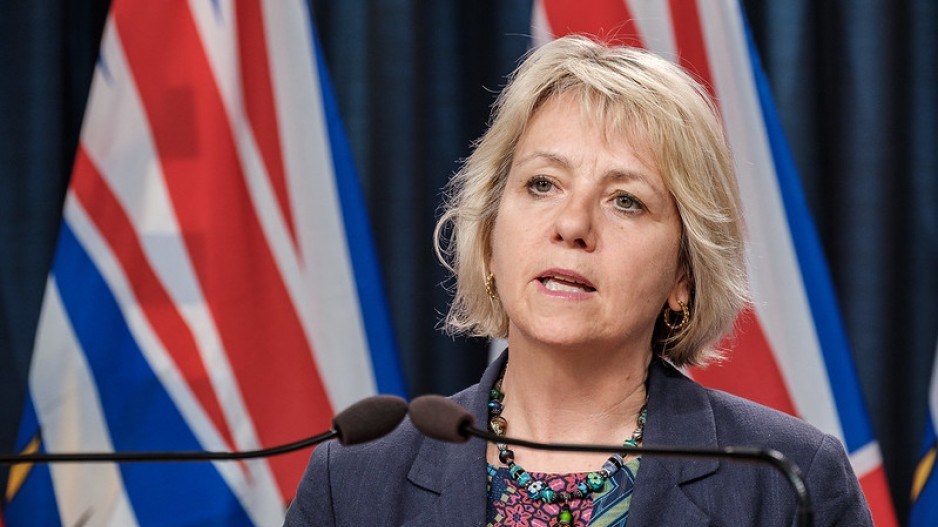The number of people hospitalized with COVID-19 in B.C. has crept up to 87 – the highest number since April 29, according to data the province released October 28.
Three more people are hospitalized today, compared with yesterday, and 25 of those hospitalized are in intensive care units.
The news comes as 287 new infections have been recorded in the past 24 hours. High levels of new cases have been recorded all week, and the 1,818 new cases recorded in the past week is an all-time high. The vast majority of new cases are in the Fraser Health region, although new cases have been identified in all health regions.
The breakdown of all known infections in B.C. by health region, with the number of new cases overnight in brackets is:
• 4,545 in Vancouver Coastal Health (69);
• 7,863 in Fraser Health (189);
• 253 in Island Health (three);
• 727 in Interior Health (10);
• 399 in Northern Health (16); and
• 88 people who reside outside Canada (no change).
With 9,568 tests conducted in the past 24 hours, the positive-test rate has fallen to 3%, from 4.2% yesterday.
Since the first infection was detected in late January, there has been a total of 13,875 people who have contracted the virus that spawned the global pandemic.
Of those, 11,244, or more than 81%, have recovered. Another 2,316 people are actively battling infections, with the vast majority of those people self-isolating at home.
Two new deaths recorded overnight mean that the province's death toll from the disease has risen to 261. The remaining 54 infected people are unaccounted for, with health officials saying that the most likely explanation is that they left the province without alerting authorities.
There is an active outbreak at Surrey Memorial Hospital, while the province today confirmed news reported yesterday by Fraser Health: the outbreak at Delta Hospital has been declared over.
The province also said that there is a new outbreak at PICS assisted living facility in Surrey – mere days after the province announced that an outbreak at that facility was over.
There are 20 other seniors' long-term care or assisted-living facilities with ongoing, active outbreaks. They are:
• Evergreen Baptist Care Society in White Rock;
• Good Samaritan Victoria Heights in New Westminster;
• Queens Park Care Centre;
• Sunset Manor in Chilliwack;
• Three Links Care Centre in Vancouver;
• Royal Arch Masonic Home in Vancouver;
• Haro Park Centre long-term care facility in Vancouver;
• Banfield Pavilion 4 West in Vancouver;
• Peace Portal Seniors Village in Surrey;
• Rosemary Heights Seniors Village in Surrey;
• Zion Park Manor in Surrey;
• Laurel Place in Surrey;
• Amenida Seniors Community;
• The Village in Langley;
• Fort Langley Seniors Community in Fort Langley;
• Baillie House in Maple Ridge;
• Fellburn Care Centre in Burnaby;
• St. Michael's Centre in Burnaby;
• Fair Haven Homes Burnaby Lodge in Burnaby; and
• Amassiz Seniors Community.
An outbreak at White Rock's Dr. Al Hogg Pavilion is officially over, according to a joint statement by provincial health officer Bonnie Henry and deputy minister of health Stephen Brown.
"There has been one new community outbreak at the Okanagan Men's Centre," they said.
The two have also advised the public against hosting Halloween parties.
"Let's save the parties for when it is safe for everyone to celebrate," they said. "If you are planning a wedding in your home, make it your immediate family only and save the celebration for next year. If you are organizing a birthday party for your children, only invite those small number of friends from your close social circle, not the entire class or sports team. The things we do at parties and celebrations including talking, hugging and eating and drinking together indoors are much riskier than our normal school or work activities."



